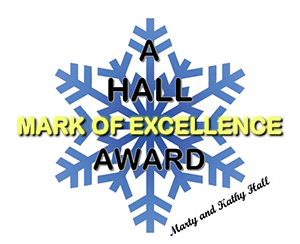 This coverage is made possible through the generous support of Marty and Kathy Hall and A Hall Mark of Excellence Award. To learn more about A Hall Mark of Excellence Award, or to learn how you can support FasterSkier’s coverage, please contact info@fasterskier.com.
This coverage is made possible through the generous support of Marty and Kathy Hall and A Hall Mark of Excellence Award. To learn more about A Hall Mark of Excellence Award, or to learn how you can support FasterSkier’s coverage, please contact info@fasterskier.com.
In Part I of FasterSkier’s interview with Rosie Brennan, she discussed her illness during the second half of the season, her pride in being an all around skier, and the challenges and emotions of skiing the World Cup in Minneapolis. As our interview continues, Brennan talks about racing in a World Championships year, and her thoughts on the Homenkollen 50-k being eliminated from this year’s calendar. Brennan also opened up about what position she would like to race in on the women’s relay team, and shared her thoughts about racing through the Olympics in 2026, and when she thinks she’ll call it a career. Spoiler alert: Enjoy watching Brennan race while you can.
This interview has been edited for brevity and clarity.
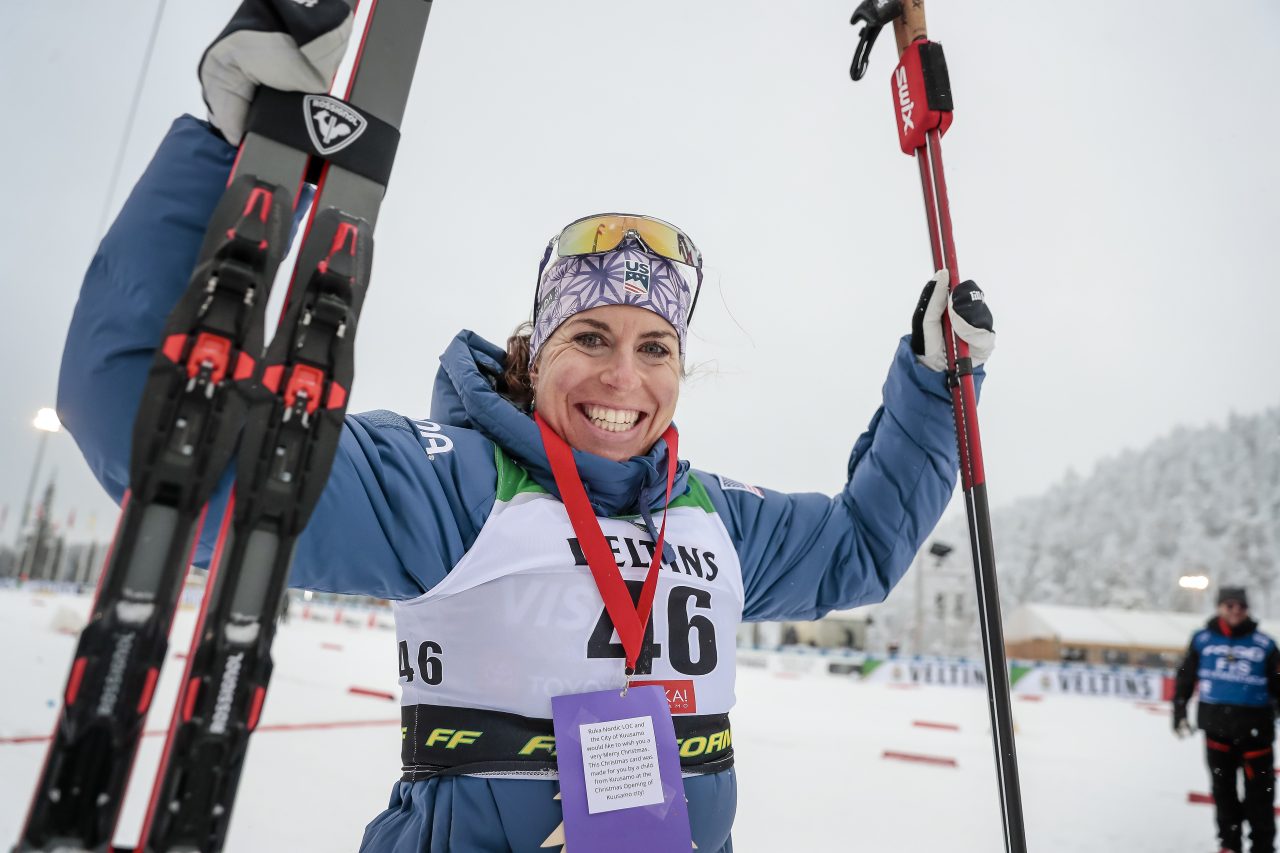
FasterSkier: The last two winters you’ve had really phenomenal starts— and now come to find out last winter you got sick halfway through the year, and obviously, that hurt your performance. Is there ever any discussion about trying to find a path throughout the entire season where there aren’t peaks and valleys, where it’s more level performances, or is that something that you just can’t control because of the length and difficulty of the season?
Rosie Brennan: It’s always the goal for sure, especially in a championship year. But I think what is often misleading for people that are following (races) is that I don’t know if it’s always just fitness or the kind of shape that you’re in that causes that (ups and downs in performance). For me, I feel like in period one for example, just the type of snow and the courses that we ski on, are all my strengths. I think I’ve just always done well in period one simply because of that. Often, I don’t actually feel like I’m racing my best in period one. I don’t feel like I’m in my best shape. It’s usually natural snow, and a lot of the courses we ski there are just ones that suit my strength. So, it’s just kind of how the cookie crumbles, I guess. And in the spring, I definitely struggle more on some of those courses and those conditions that’s more like transformed spring snow. It is definitely more challenging for me. Part of it is a physiological thing of how can I maintain my fitness as best as possible. But I think more so, it’s about working on my weaknesses. Obviously, you can’t just find spring snow to ski on and all year round to practice on. But when I have those opportunities, I like using them to try to improve specific technique aspects that I think are needed in that type of snow and working on that in the summer. I don’t think it’s always as simple as it’s just your shape fades or gets better or whatever. The particular pattern of the individual is I think a little more nuanced than that often.
FasterSkier: Is the spring snow thing something that’s an issue because you’re used to skiing so much in the cold, dry Alaska snow?
Rosie Brennan: No, I don’t think that’s true because I’ve never skied in Alaska in the winter. I ski in the fall and the spring there. But I grew up in Utah, and in Utah we get plenty of spring skiing and most of the skiing I’ve done in the past has actually been done in Alaska on the glacier, which is spring like. That was one of the perks of being in Alaska, was to have the glacier and to ski in those types of conditions. I have had plenty of opportunities. I think it’s just my particular physiology and the way I ski, and the way I apply power, and kind of how my power just suits that cold, dry snow better, and I think I am a bit more of a capacity grindy skier. I like grindy type courses, which the slower the snow is, the grindier it gets; so I think it’s just kind of my physiology and how I am.
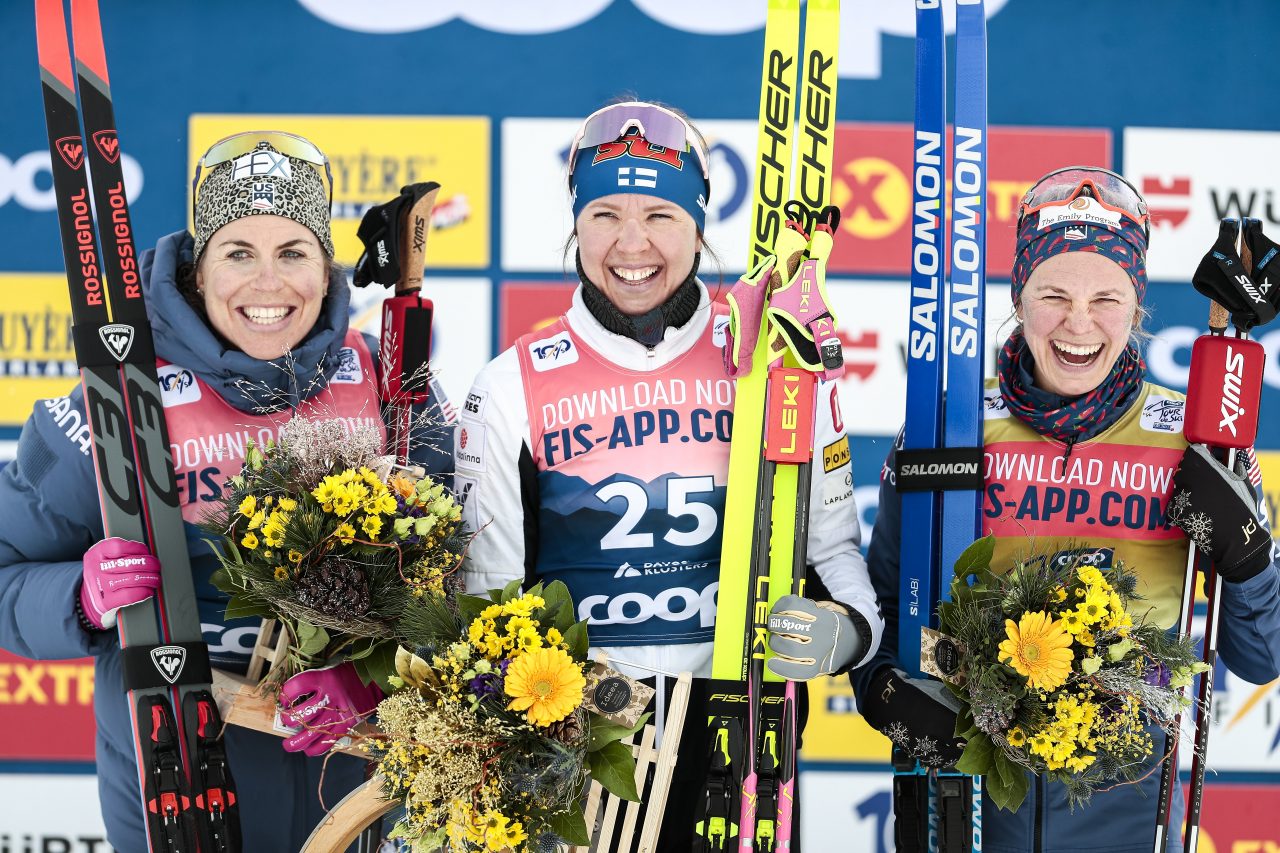
FasterSkier: But you’ve always done pretty well in in Davos too. Right?
Rosie Brennan: Well, yes, but I grew up at altitude. So anytime we race at altitude, I feel I have quite a big advantage and I love skiing at altitude. But Davos is a perfect example. Not only is it at altitude, it’s literally 3-k of grinding uphill—not super steep— and that’s like the dream for me— uphill, but not crazy steep, at altitude. So that course has for sure been magic for me many times.
FasterSkier: When you’re going through the season and it’s getting close to Davos do you kind of count on that for good outcomes? Almost like a football team having been on the road for a long time and coming home for a game. Is that that kind of how you view Davos at this point?
Rosie Brennan: Yes and no. It also comes with pressure, especially if I haven’t had a good result to that point. I’m like, ‘oh, God, I gotta, make something happen here.’ But I just really do enjoy racing there. It’s really fun to me, so I do look forward to it. But I would say I can’t always count on it as being a stellar result though.
FasterSkier: Do you have any specific goals that you’ve put together this summer that you’re looking to apply to this coming race season?
Rosie Brennan: Kind of what I told you what I’ve been working on and just having stronger legs, and my goal is to be in the best shape possible for the Championships. So, part of my goal is to go to Trondheim and … I mean, obviously we raced there last year too, so I already had some idea of the demands of the course … but kind of just, reiterating those (goals) and continuing to work on that stuff.
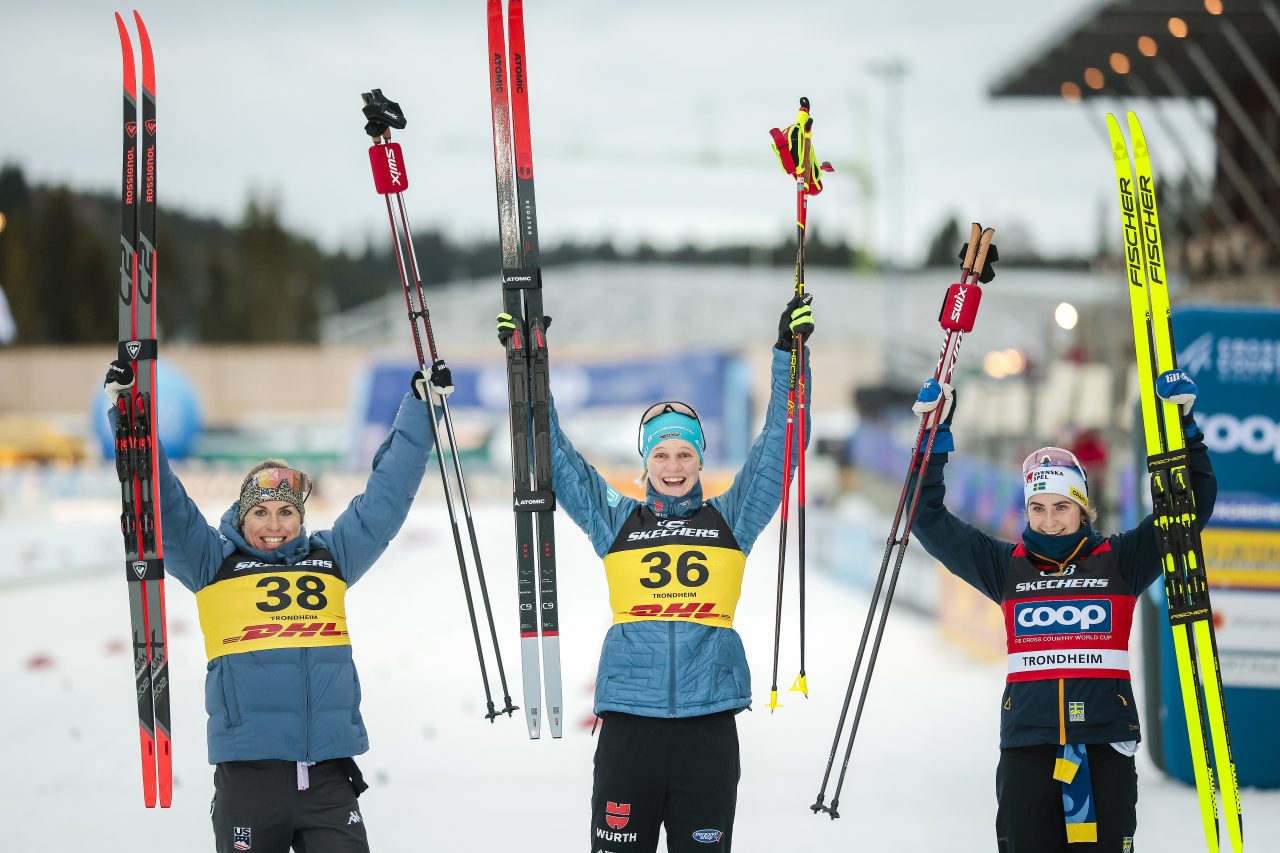
FasterSkier: When it comes to the World Championships, do you have a particular race date circled that you’re trying to really focus on and say ‘Yeah, that’s my race,’ or is it just every race every day?
Rosie Brennan: I definitely hope I get to race a fair amount at the Championships. I would say the 10-K and the Skiathlon are probably my top picks and then of course the Relays are very important to our team, so I always hope to get to do that. I do hope to race a fair amount at the Championships, but that’s something I quite literally have no control over. So we’ll see when it gets closer, how things are going, and what starts the coaches decide
FasterSkier: You didn’t mention looking forward to the 50K?
Rosie Brennan: (Laughing) I definitely am looking forward to that. I’m optimistic for it. It’s the last race. So I think unless I’m sick or something I’d love to love to go in that race. I think it’s always a nice opportunity just to leave everything out there and see what you have left in the tank. So I do hope to participate in that too.
FasterSkier: That race kind of race falls into the description of what you were talking about earlier, going out there in the long grinds. The snow conditions in Trondheim might not be ideal for what you want, but it’s at least it’s a long, grinding race.
Rosie Brennan: For sure, and the way that course is its very kind of grindy like that. So it could be good. And that’s part of the motivation of making sure I am really strong this season, the specific strength of being able to skate a course like that for 50-K, it definitely takes a lot of specific strength.
FasterSkier: You mentioned in passing the relays, which the team always looks forward to, and puts a lot of emphasis on. For a while it has been a real team focus of getting to the podium in the women’s relay in a World Championship or Olympics. Do you think that at this point it might be a goal that’s so desired by the team that there might be a lot of self-imposed pressure that might not necessarily be productive?
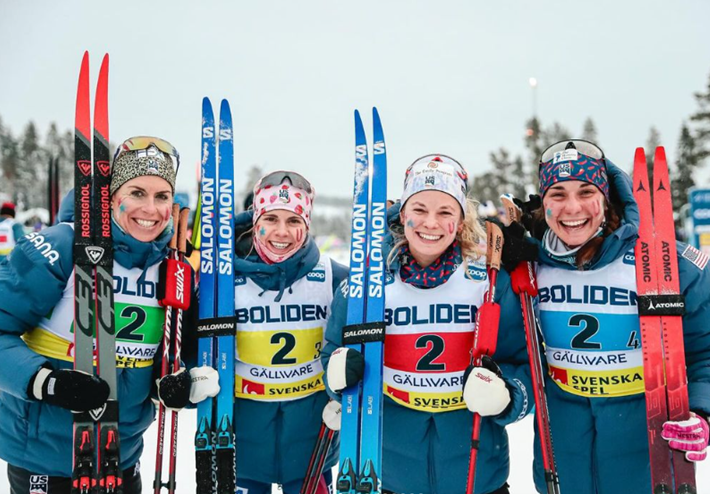
Rosie Brennan: No, I don’t think so. I think that’s what’s cool about— or I guess cool and challenging about relays— is it takes four people and that’s obviously something that I don’t have control over. Of course, I want to do everything I can to make sure my teammates are in the best shape they can be too, but I ultimately only have control over myself. Then of course, we have more than four people that could possibly be on that team. So, we don’t even know who’s going to make up that team until the time comes. And it’s one of those things that you just have no clue what it’s going to look like so it’s hard to feel pressure over that. Of course, that day or two before, when you find out you’re on the team, that’s when the pressure hits because you’re like, alright, this is our chance and I’ve been picked and that’s such a big honor and you want to do your team well and show the best you can. So maybe the day or two before, you feel the pressure. Maybe it’s different for other people on the team. For me, honestly, the first relay I did at World Championships was probably some of the most nervous I’ve ever been in my whole life. But the one that I maybe felt the most expectation or pressure for was in Oberstdorf; and I think part of that was a team that just had really, really high potential, and had some of my closest friends, so that one was hard because we also came so freaking close and so that one was maybe harder to swallow (the 2021 U.S. team in Oberstdorf consisted of Hailey Swirbul, Sadie Maubet Bjornsen, Rosie Brennan, and Jessie Diggins, finished fourth, less than one second off the podium). But since then, half that team retired and so we’ve kind of been rebuilding, so I don’t really feel the pressure. I see it more as an opportunity and a place where some of these younger girls can step up and really show themselves and who knows what’s possible when they kind of make that jump and find their stride which I’m watching happen every day. So, I think it’s for sure possible this year and definitely coming in the future.
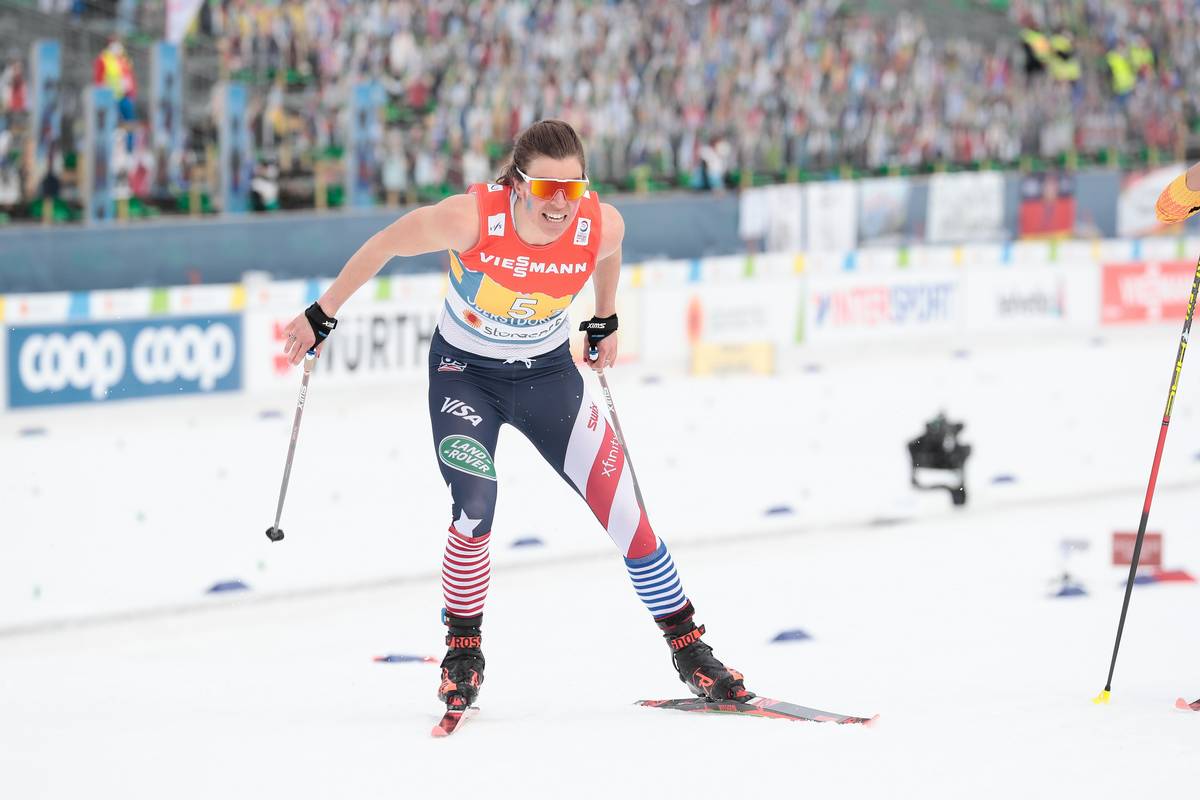
FasterSkier: If you were in charge of setting the rosters for the relay where would you put yourself? What would be your favorite position to be in?
Rosie Brennan: I like legs two and three. I don’t love mass starts and I can’t imagine the pressure of anchoring, and Jessie’s too good at that. But I guess it would depend on that season and which technique I’m vibing more with. I really enjoy leg two, but leg two is also I think the hardest because that’s where every team puts their big capacity skier to blow things open, and Classic legs take longer, so the time differences can be bigger, and a lot of times the Classic courses are actually harder too. So that leg actually does have a fair amount of pressure because staying in contact in that leg is extremely hard. But if my Classic skiing is going well, then I love that position. I think it’s really cool and suits a lot of my strengths well, but I also really enjoy leg three when my Skating’s been good. That’s been a really fun one too. You can really make up some ground on leg three.
FasterSkier: You alluded to this earlier; your Classic skiing has been going so well that as an outsider looking in it’s really impossible to say that you are better Classic or better Skating. Do you consider yourself at this point stronger in one or the other?
Rosie Brennan: I just flip flop. I have my whole career. This last year I was way better in Classic. And I maybe had a few more years that I’ve been better in Classic than Skate I would say. But also, the only World Cups I’ve won have been in Skate. That’s what I like about skiing, if something’s not going well, hopefully something else is. I kind of enjoy just seeing what the year’s going to bring.
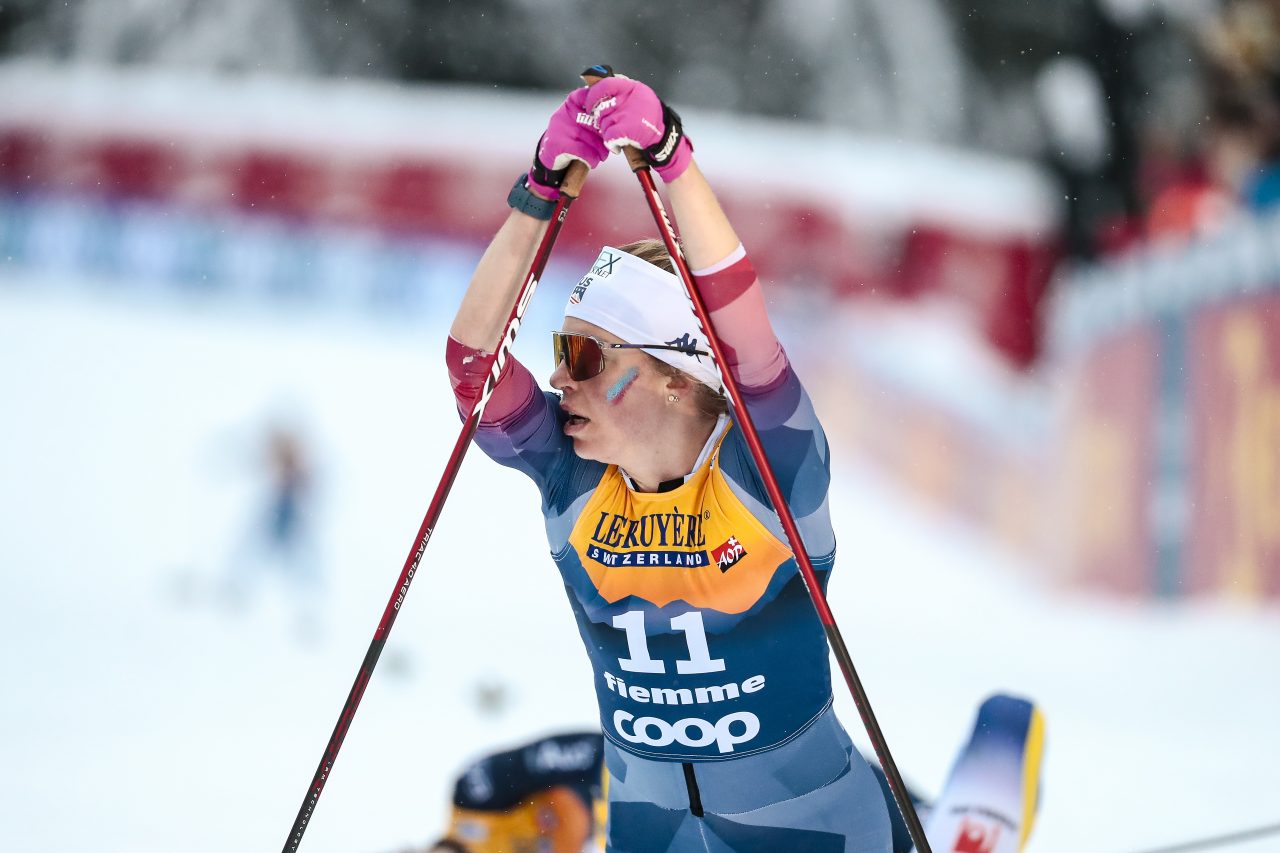
FasterSkier: It’s one of those interesting years again with the World Championships, and the Tour de Ski earlier on the calendar. Last year, there were no World Championships, so it was easier to focus on the Tour de Ski. This year, how do you approach the Tour de Ski? Is it any different than it was last winter, where this winter you can’t afford to blow yourself up because you’ve got the World Championships coming down the road?
Rosie Brennan: No. If you go to the start line, you are on the start line to try to win whatever the race is. At least that’s how I race. And I think that’s how most people race. If I choose to start, I feel I’m as prepared as I can be, and I’m putting my best foot forward. The difference is just in maybe taking a little more caution in terms of the recovery after the Tour and like you said, World Champs is quite late so there is a bit of time to mess up a little bit, not have things go perfectly and be able to correct and still be in good shape for the Championships. I’m planning to do the Tour and I kind of imagine most of the World Cup will as well. I think it’s more in the Olympic years that it gets a bit tricky just because the time— it’s like a month shorter time frame that you’ve got. And this year the Tour has almost no travel in it, so that also makes the load a bit easier. So we’ll see. Last year, for example, maybe if I had had the Championships ahead (of the Tour) I would have pulled out of the Tour because to be honest, I think I got a virus right before the Tour started, and that’s when things went south for me. So, especially having had that experience, I think I’d be faster to pull the plug in a season when there’s a Championship. But I think in terms of the approach it it’s very much the same.
FasterSkier: It seems that some years in World Championship seasons there are certain teams that turn their focus just to that and reconfigure how they race during the rest of the World Cup year and save it all for the World Champs. It sounds like that’s not something that really is in your strategy?
Rosie Brennan: To be honest—maybe I’ll eat my words— but think that used to happen a lot more than it does now. It seems like most teams show up to race most of the season. Maybe there’s a few individual athletes that have different schedules or priorities, but to me it seems like most people are racing everything. I don’t imagine there will be a lot of people skipping the Tour in in favor of their performances at World Champs. Those World Cups after the Tour always get a little weird— part of it I think is people wanting to prepare for the Championships— but part of it is also a lot of those nations have their national championships during that time, which is their qualifier for World Champs, so sometimes nations do have to miss some of those World Cups. I would say that’s when it gets a little more spotty. The last years that I can remember, the Tour has been pretty full on. Maybe some of the Covid years there was bad stuff going on, but that was a whole other thing. Some of those nations weren’t allowed to go because of Covid.
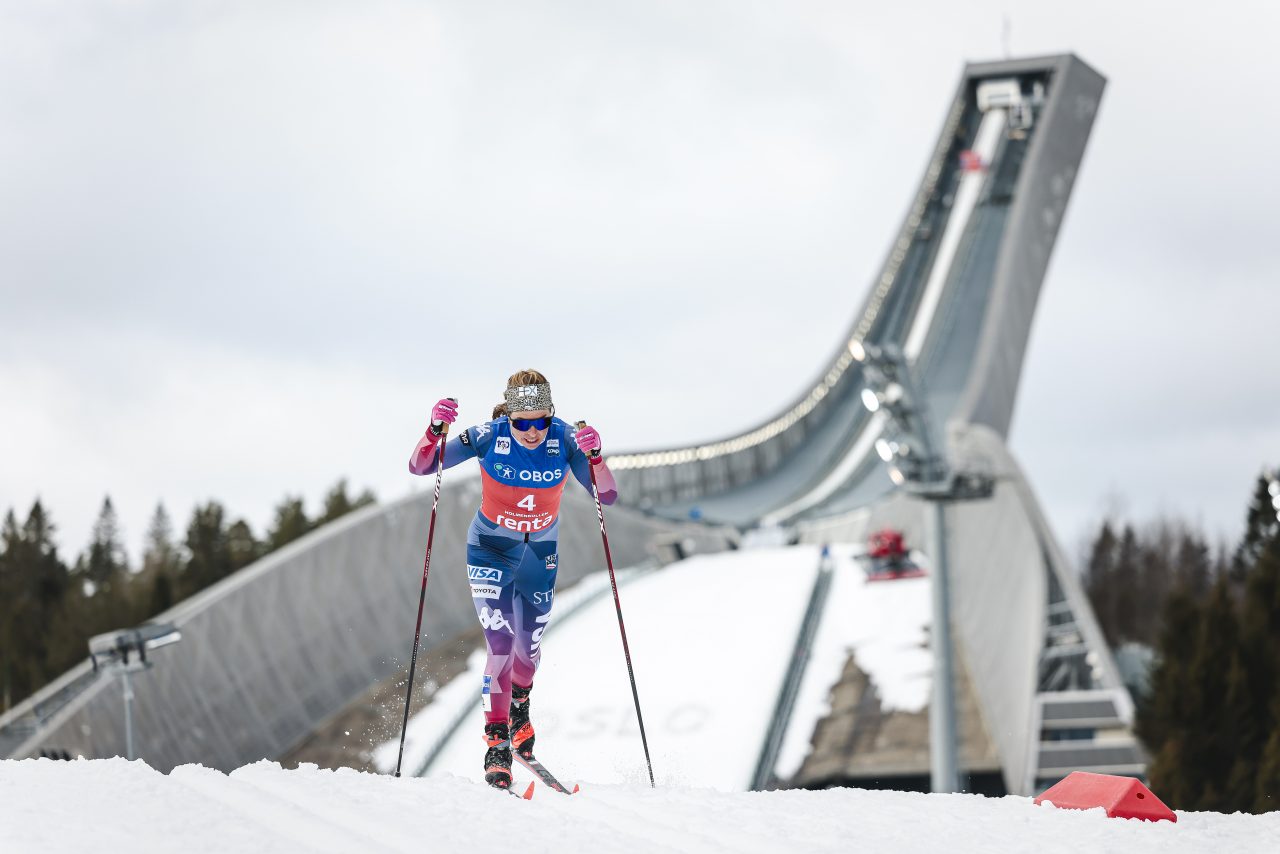
FasterSkier: One of the unusual things on the calendar— or I guess more appropriately not on the calendar this year— is the Holmenkollen 50-k. I’m wondering if you have any thoughts on that being left off the calendar?
Rosie Brennan: I’m not particularly bothered by it. I was going to be bummed if we didn’t have any 50-ks, because I think it’s important to have one World Cup 50-k every year. But they just moved it to Lahti, which I think is great (March 23, 2025, 50-k Classic). I’m a big fan of variety. I think it makes it more fun for the athletes and hopefully for the fans too. I think it’s kind of boring that we’re only allowed to do 50-k at Holmenkollen every year because there’s a lot of places that can put on great 50-ks. So I’m not bothered by it at all. What annoys me the most is the reason they did it (eliminated the 50-k at Holmenkollen) was because so many athletes didn’t show up to Holmenkollen after the Planica World Championship, it was the next weekend—which fair enough— but then they put two distance races at Holmenkollen (this year) anyway which to me it’s’ not that different(10-k Freestyle and 20-kilometer Classic, March 15th and 16th at Holmenkollen—with the World Championship concluding the week before on March 9th). If you’re someone who’s going to race five or six times at World Championships and then turn around not even a week later race two distance races that’s still a lot of load and a lot to ask someone. I don’t understand why it’s not a Sprint weekend or something else because the Sprinters race the first day at World Champs and then have nothing else for two weeks. So, to me they kind of address the problem, but not actually. But yeah, I don’t really care about it much. I just don’t see why there’s not at least one Sprint if not two (at Holmenkollen), just to balance out the Distance and the Sprint and give the Distance skiers a break and the Sprinters have just had a huge break. I just think it could have been a little more equally spread out that way.
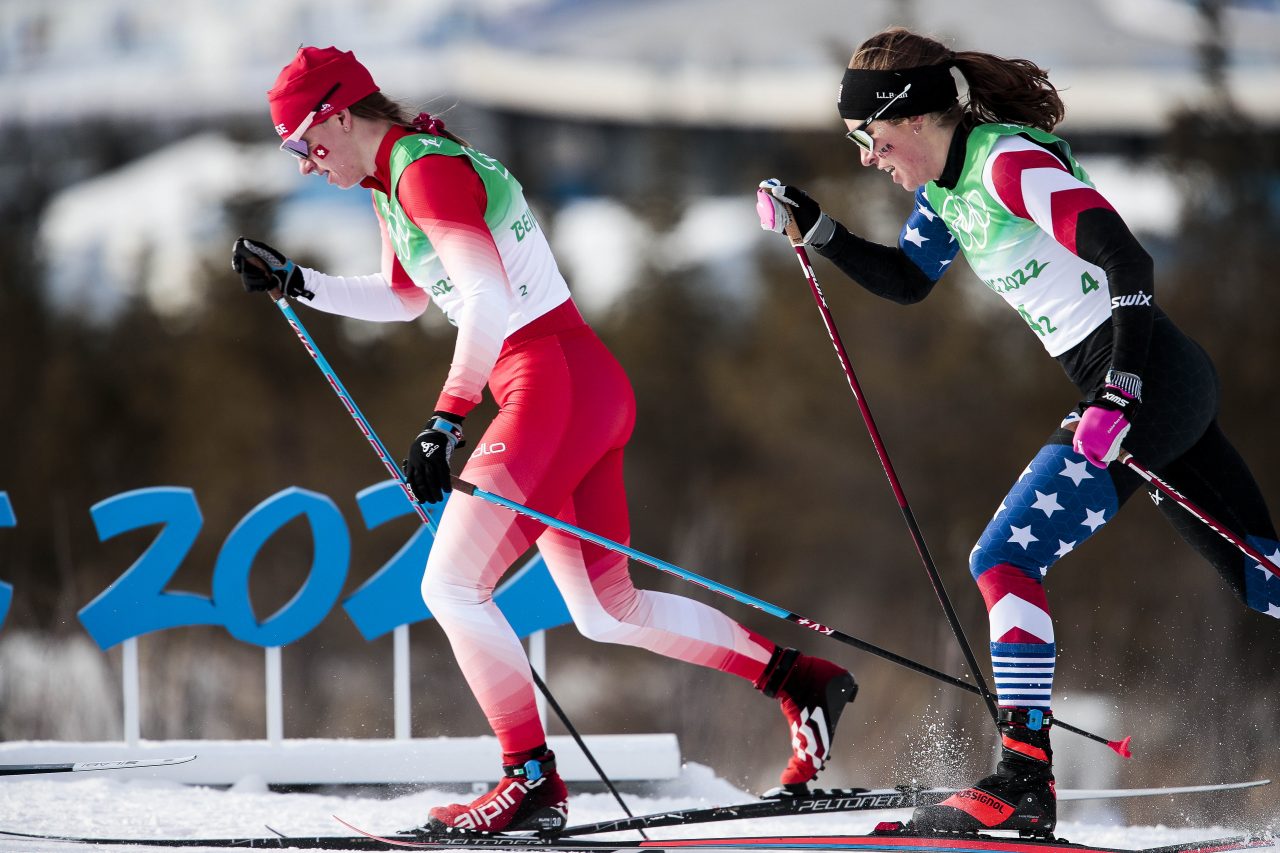
FasterSkier: I want to talk to you about the longer calendar. The Olympics are only two years away. You’re 35. Do you feel pretty comfortable committing to the Olympics as being part of your future ski racing? Or is it too early to say?
Rosie Brennan: It’s probably too early to commit that hard. I would like to ski in the Olympics, but it’s not something that I’m going to die for. If it’s not meant to be, it’s not meant to be. I think I will know that whenever the time is that I have to make that decision moving forward. It’s something I think about for sure. I would like to be there; I don’t want to force something. I’m not going to race my best if I’m forcing myself to do it just to say I did it. So, it has to be something that I’m motivated for, and I feel I can do my best. I definitely would like to. I still have the desire at this point to see what I can do in an Olympics. To perform well at the Olympics, you have to have all the motivation in the world and feel all the confidence that you can be at your best there, and I don’t know if I know that answer right now.
FasterSkier: Is it fair to say then that at this point your kind of just taking it one year at a time?
Rosie Brennan: Yeah. Well, I can promise you I won’t ski past 2026. We got one to two years left.
FasterSkier: That’s quite a definitive statement. Is that just because that’s the end game that you have in your mind?
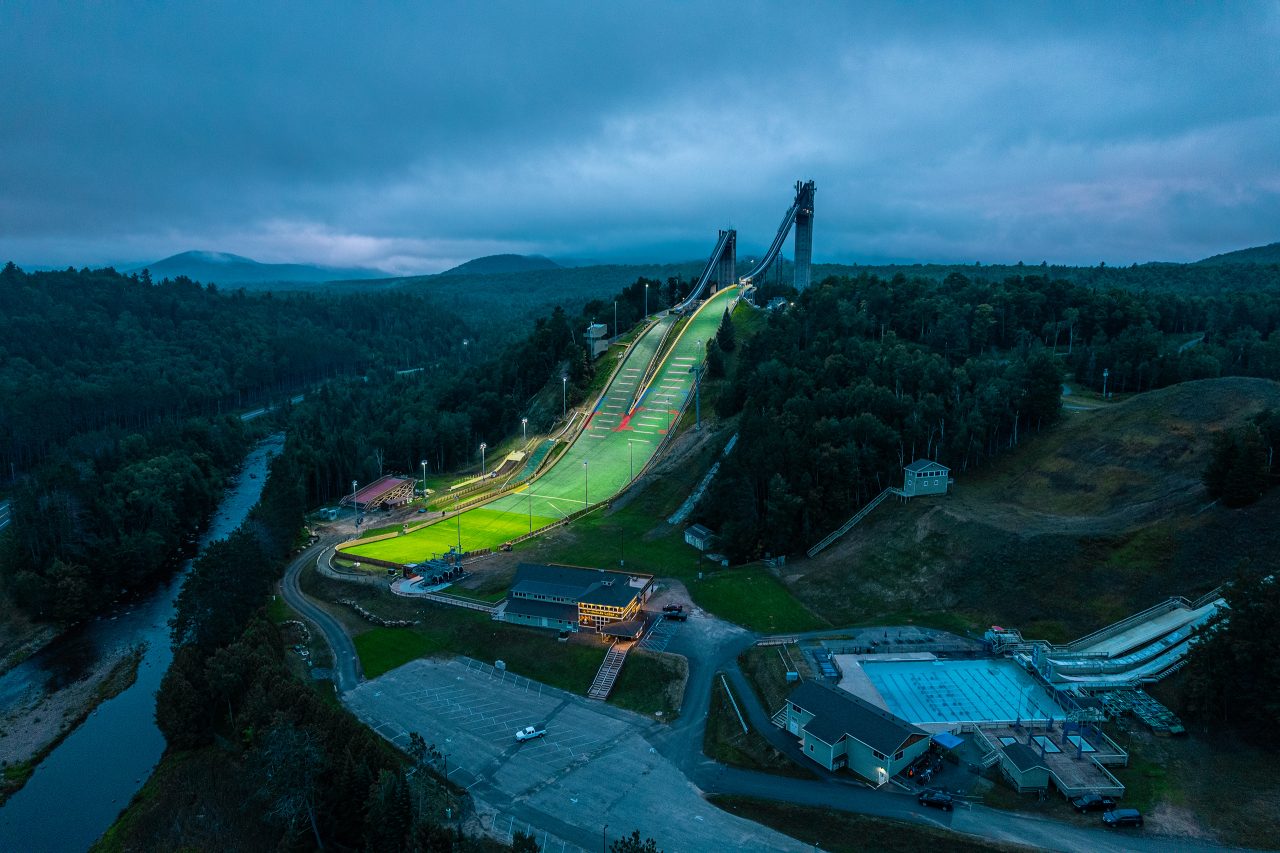
Rosie Brennan: No, I think it’s just that there are other things I want to do in my life, other things I want to accomplish. To be honest, I think a bigger motivator than the Olympics is the World Cup finals in Lake Placid. To me that would be quite a cool way to end my career. So, I’m motivated for that, but we’ll see when push comes to shove next spring where I’m at. You know, I love racing, but it’s hard to have a life when you live in a hotel for seven months of a year. And at some point, that takes its toll on your personal life and well-being. I do have other ambitions in life, there are other things I want to do.
FasterSkier: It’s interesting you mentioned Lake Placid because the organizers acknowledged that several prominent U.S. team members, who will be veterans at that point, might find it an opportune time to have their career finales, and the organizers were quite cognizant of that.
Rosie Brennan: I don’t think I’m the only one that has that in their mind right now. It’s kind of on the same line as there have been so many Swedes that have come out and said that their careers will end following World Champs in 27 (Falun, Sweden will host the Nordic World Championships in 2027). I think it makes for a good story and a nice way to go out. I think it definitely motivates people to have that kind of last home event.
FasterSkier: So maybe you stay for 2026, but definitely nothing beyond that?
Rosie Brennan: Yeah, that’s where I’m at right now anyway, but I’ll always leave room to change my mind (laughing).
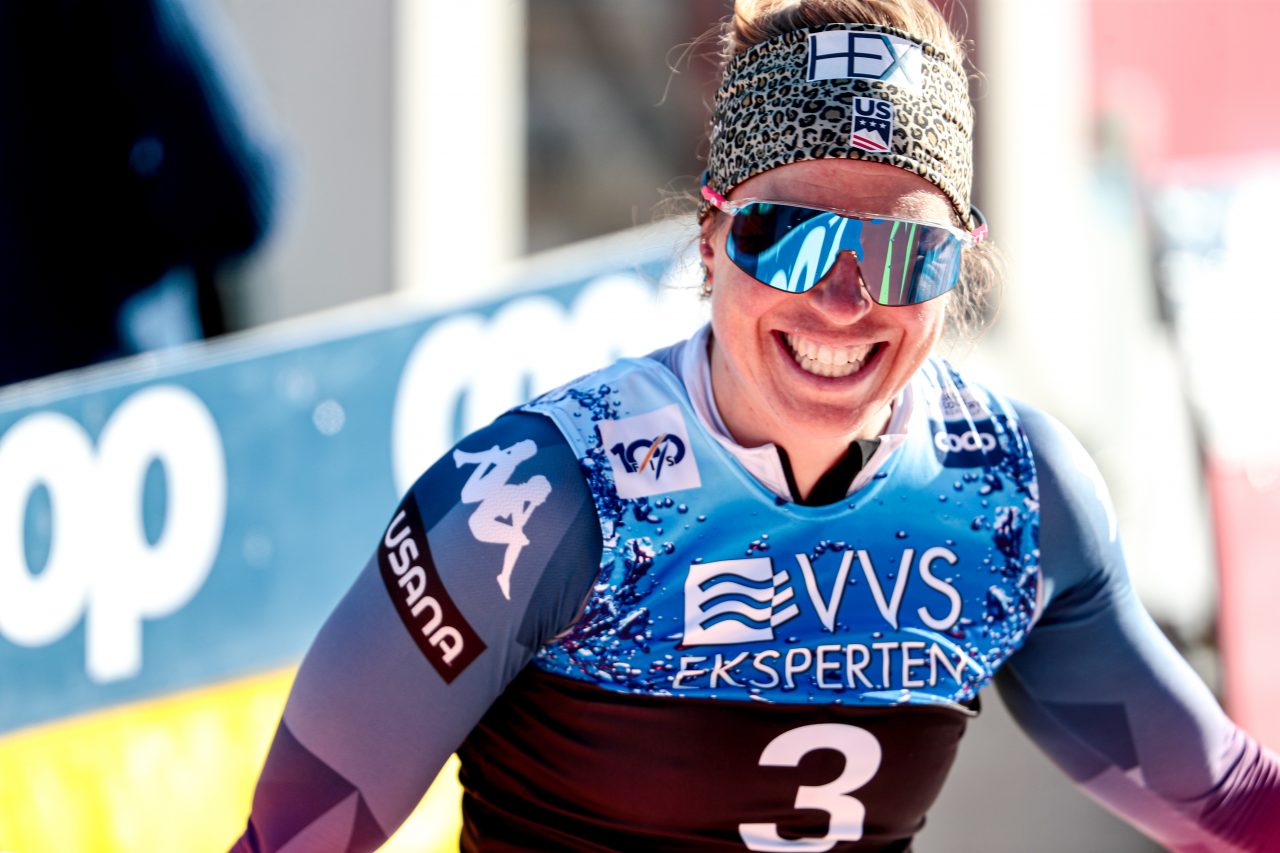
FasterSkier: Understood—nothing’s being signed here. (both laughing). Rosie it’s really been a pleasure and so enjoyable speaking with you. Thank you for taking the time to do this and I’m sure our readers really will appreciate it also. Have a good rest of the summer.
Rosie Brennan: You too.
FasterSkier extends our sincere appreciation to Rosie Brennan for taking time out of her busy schedule to speak with us.



